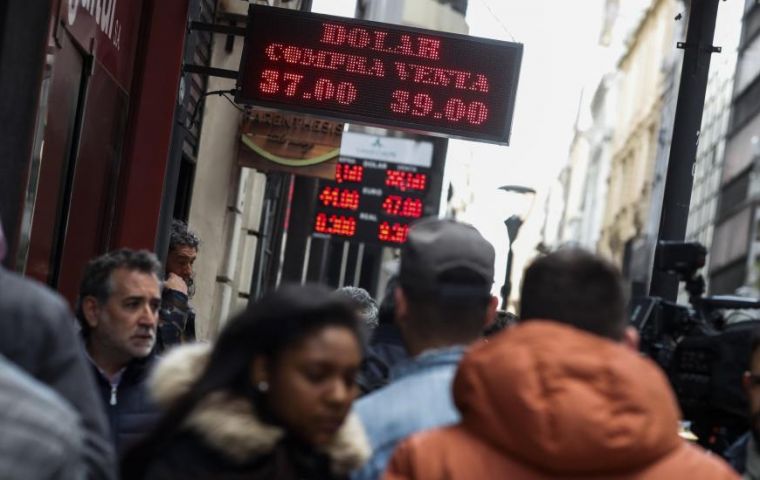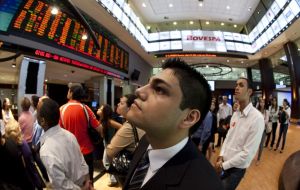MercoPress. South Atlantic News Agency
Brazil's Real and Argentina's Peso slumped on Monday
 The Argentine Peso led losses, slipping by more than 3%, on expectations of the talks with IMF on Tuesday
The Argentine Peso led losses, slipping by more than 3%, on expectations of the talks with IMF on Tuesday  The Real weakened almost 2%, nearing its lowest level in 2-1/2 years, also weighed down by anxiety over October's presidential election
The Real weakened almost 2%, nearing its lowest level in 2-1/2 years, also weighed down by anxiety over October's presidential election The Brazilian Real slumped on Monday as mounting concerns over this year's presidential election added to global risk aversion, while the Argentine peso extended a recent sell-off that also spread into stock markets in Latin America.
Emerging market currencies in general have suffered in recent weeks due to escalating trade tensions surrounding the United States that investors believe could damage global growth.
U.S. President Donald Trump said on Saturday there was no need to keep Canada in the North American Free Trade Agreement and warned Congress not to meddle with the talks to revamp NAFTA or he would terminate the trilateral pact.
The Real weakened almost 2%, nearing its lowest level in 2-1/2 years, also weighed down by anxiety over October's presidential election. Brazil's Bovespa stock market was down 0.63%.
”There's a lot of uncertainty, both concerning the trade war and the outcome of the elections. And liquidity is thin due to the U.S. (Labor Day) holiday,” a trader at a São Paulo-based brokerage said.
Other Latin American assets were also down, with Mexico's and Chile's currencies slipping nearly 0.5% and almost 0.3%, respectively.
However, the Argentine peso led losses, slipping by more than 3%, and deepening a recent rout driven by growing bets against President Mauricio Macri's ability to rein in a fiscal deficit and curb inflation.
The move came even after the government unveiled a new export tax and spending cuts aimed at fighting the currency crisis while it continues to negotiate additional funding with the International Monetary Fund (IMF).
The Argentine peso is down over 50% this year. Argentina's stock market slid more than 1.6%, while other indices in the region also came under pressure.




Top Comments
Disclaimer & comment rulesCommenting for this story is now closed.
If you have a Facebook account, become a fan and comment on our Facebook Page!